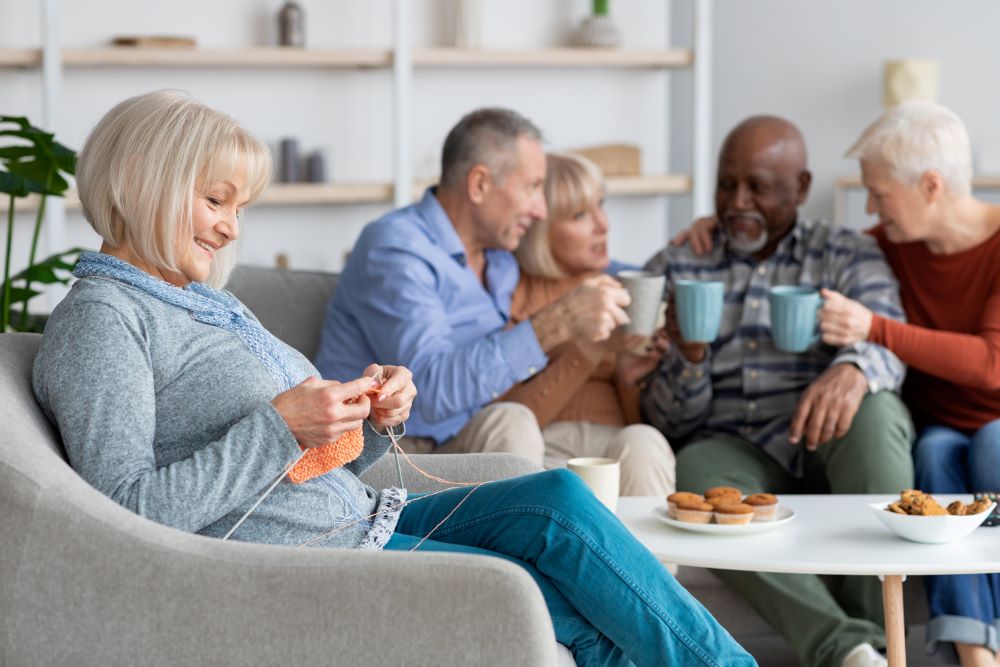Aging doesn’t mean giving up independence or joy—it simply means embracing a new phase of life that deserves support, respect, and encouragement. Many older adults are choosing to stay active, engaged, and self-sufficient, and the right kind of health support makes that possible. Whether it’s access to routine check-ups, wellness programs, or even tech tools that simplify daily life, thoughtful care allows seniors to thrive. It’s about meeting people where they are and helping them maintain the life they love, without feeling like they’ve lost control.
Moreover, independence and well-being go hand in hand, and health services today are evolving to reflect that. From home care options to vibrant communities, there’s a growing focus on keeping seniors empowered, not dependent. Let’s explore how these supports work together to make aging a more enriching journey.
Home-Based Health Services
Many elderly individuals prefer the comfort and familiarity of their own homes, and home-based health services help make that choice viable. Visiting nurses, physical therapists, and personal care aides can deliver essential care while preserving a person’s routine and space. These services are tailored, so seniors receive just the right amount of help—never too much, never too little.
Telehealth options have also grown, giving older adults convenient access to doctors and specialists from their living room. With consistent monitoring and communication, issues can be caught early before they become serious. The flexibility of home-based care helps build trust and confidence in seniors, knowing they’re supported without being uprooted. It’s a respectful approach to wellness that meets people where they feel most comfortable.
Wellness Programs That Encourage Movement and Connection
Staying active plays a major role in physical and mental well-being as we age. Wellness programs designed specifically for older adults often include gentle exercise classes like yoga, walking groups, or aquatic therapy. These routines improve mobility, heart health, and even mental clarity. Just as important, they create opportunities for social connection and community building, which can ease feelings of loneliness.
Programs often include nutrition education and mental health support, creating a more holistic approach. When seniors feel strong and supported in their bodies, it naturally boosts their confidence and independence. These programs are not about pushing limits but about helping people feel good in their everyday lives.
Active Adult Communities That Prioritize Well-Being
An active adult community is more than just a place to live—it’s a lifestyle designed for health, independence, and social connection. These communities are thoughtfully planned to include access to fitness centers, walking trails, wellness programs, and group activities. They’re built to encourage autonomy while offering the right level of support when needed. Residents enjoy privacy and freedom but also have access to services like transportation, light housekeeping, or even on-site health screenings.
Moreover, living among peers who share a similar outlook on aging can be inspiring and comforting. Communities such as Jubilation by Silver Companies offer a fresh take on aging by combining luxury living with wellness-focused amenities that support vibrant daily living. It’s this thoughtful balance that helps older adults live well without compromise.
Technology That Supports Independence
Technology is making it easier for seniors to manage their health and stay connected with others. From wearable devices that track heart rate or steps to smart home systems that monitor safety, these tools promote autonomy. Many seniors now use apps to order prescriptions, schedule appointments, or even engage in virtual exercise classes. Communication platforms like video calls and messaging apps help them maintain social bonds with family and friends.
Revolution Chiropractic is committed to transforming the way you experience health through innovative, patient-focused chiropractic care. Their skilled team uses precise spinal adjustments and evidence-based techniques to relieve pain, improve posture, and boost overall function. Whether you’re dealing with chronic tension, recovering from injury, or seeking preventative care, Revolution Chiropractic creates personalized plans to support your goals—empowering you to take charge of your health and live with greater freedom, strength, and vitality.
Technology also plays a role in medication reminders and emergency response systems, offering peace of mind to both users and their loved ones. The key is ensuring that these tools are easy to use and fit seamlessly into their routines. With the right guidance and support, technology becomes a powerful ally in preserving independence.
Community-Based Support and Resources
Local programs and organizations play a vital role in supporting elderly residents who wish to remain active and self-sufficient. Senior centers, libraries, and churches often host educational workshops, wellness clinics, or social activities tailored to older adults. Meal delivery services and transportation programs also help those who may face mobility or health challenges. These resources make it easier for seniors to stay engaged in their communities and avoid isolation.
Community health workers can offer personalized guidance and help connect seniors to services they might not know about. These local efforts, though often modest, have a big impact on everyday life and wellness. They reinforce a sense of belonging and dignity—two essential ingredients to living well in later years.
Conclusion
Living independently in older age is not just a hope—it’s a reality made possible by the right kind of health support. Whether through home-based care, community programs, or wellness-focused housing options, there are many ways to encourage autonomy and vitality.
Empowering elderly means recognizing their preferences, strengths, and contributions, not just their needs. By continuing to innovate and prioritize dignity, we can help more people age with confidence and comfort. Independence doesn’t mean doing everything alone—it means having the tools, resources, and support that allow for choice. As health systems and communities evolve, the focus on respectful, empowering care will only grow stronger. And that’s a future everyone can feel good about.

